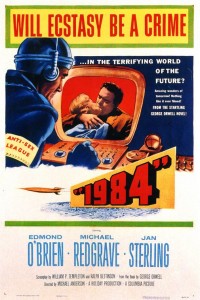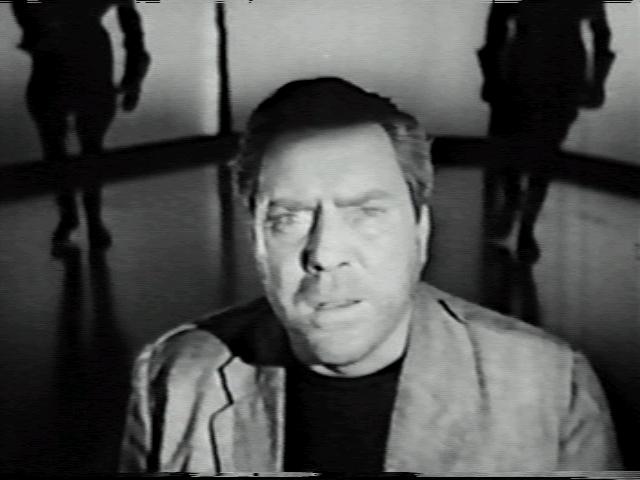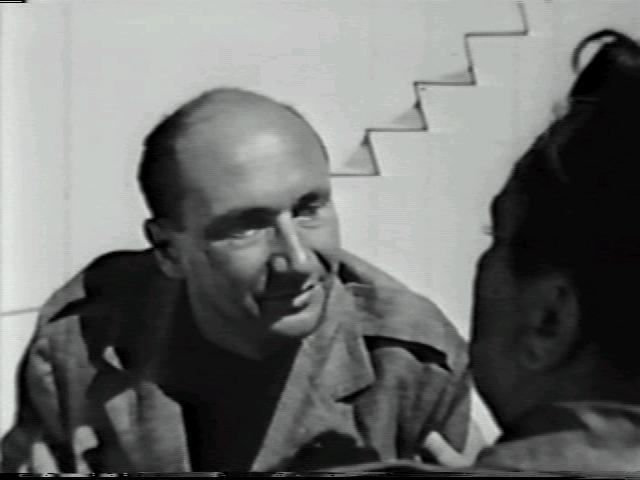“They’re afraid of love, because love makes a world they can’t control– And it’s a world worth taking risks for, isn’t it?”
|

Synopsis:
In a totalitarian future, government employee Winston Smith (Edmond O’Brien) challenges “Big Brother” by taking on a secret lover (Jan Sterling).
|
|
Genres, Themes, Actors, and Directors:
- Donald Pleasence Films
- Dystopia
- Edmond O’Brien Films
- Jan Sterling Films
- Michael Redgrave Films
- Political Corruption
- Propaganda
- Resistance Fighters
- Science Fiction
Review:
This unfairly maligned early cinematic version of George Orwell’s classic novel has much to offer — including atmospheric black-and-white cinematography, effectively oppressive set designs, and an overall tone of gloom and despair which aptly suits Orwell’s intent. It’s difficult not to get caught up in Smith’s paranoia as he struggles to maintain a modicum of independence and authenticity under the watchful gaze of Big Brother — and by the final scenes, we find ourselves despairing on behalf of his seemingly hopeless situation. Unfortunately, as noted by many, both O’Brien and Sterling seem a bit “long in the tooth” for their roles, playing characters who most readers imagine as much younger; their clandestine romance is the weakest part of the film, and is portrayed much more effectively in the 1984 version (starring John Hurt and Suzanna Hamilton).
Redeeming Qualities and Moments:
- Effectively “Big Brother”-ish set designs

- Atmospheric black-and-white cinematography

- Donald Pleasence as O’Brien’s pro – “Big Brother” neighbor

Must See?
Yes. While die-hard fans of the book will inevitably be disappointed by minor discrepancies, this film remains a powerful first-stab at adapting the most famous dystopic novel ever written.
Categories
Links:
|
One thought on “1984 (1956)”
An absolute must! I was unaware that (as noted) this version was not received well critically, and I find that puzzling, to say the least. (I’ve read Orwell’s book twice – most recently within the last five years; though I can’t state how faithful this version is to its source, it certainly captures enough of letter and spirit to be satisfying.) The budget seems modest – though the result is a smart simplicity that serves the film well and, more importantly, has helped it as it has aged. The fact that O’Brien and Sterling (a fave actress of mine) aren’t younger doesn’t seem bothersome. The four main performances (including dependable Donald Pleasance and the forceful Michael Redgrave) are splendid. The irony of Burridge’s remark does give one pause; it’s astonishing that this important piece of cinema history – the product of a major studio (Columbia) – is so hard to find. Having seen it again, I look forward to rewatching the (also a little hard to track down) remake – an improvement, I know; but this earlier version is still very impressive.